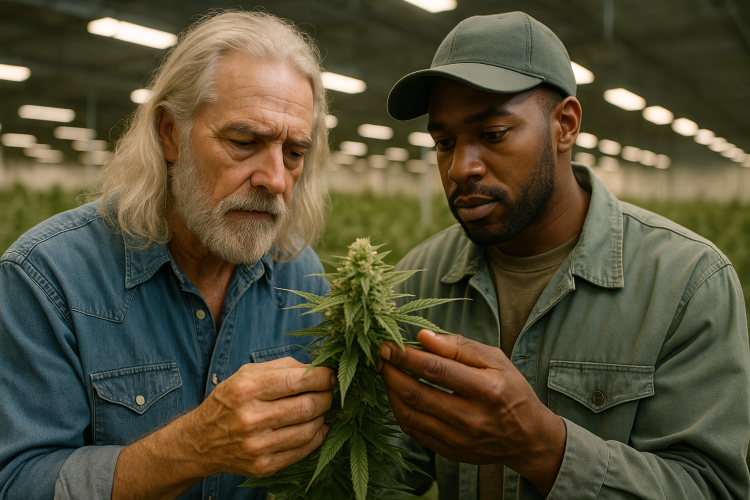The Legacy Imperative: Why Legacy Knowledge Could be Cannabis's Most Valuable Asset
Legacy growers built this industry. Corporate cannabis ignored them—and paid the price in bad product, weak brands, and lost trust. The future belongs to those who partner with the past, not erase it.

The single greatest strategic error of corporate cannabis has been its dismissive treatment of legacy knowledge—the generations of expertise cultivated by those who risked everything to keep cannabis alive through prohibition. This isn't just a cultural misstep. It's a catastrophic business failure that has cost companies billions in squandered capital and missed opportunities.
Legacy cannabis operators—those who developed cultivation techniques, genetics, distribution networks, and customer relationships during prohibition—possess the industry's most valuable intellectual property. They understand this business isn't just another widget to optimize. It's a gateway to healing, expansion, self-discovery—a personal portal with profound cultural context.
This expertise wasn't developed in MBA programs or corporate incubators. It was earned through decades of risk-taking and relationship-building. Legacy cultivators perfected strains through thousands of growth cycles. They received immediate feedback on every batch—what people loved, hated, wished for. They innovated constantly, not from market research but from direct connection to plant and consumer. From this earned intimacy came proprietary formulations, trade secrets, and territorial credibility that cannot simply be purchased.
Corporate cannabis, having largely failed to properly value this knowledge, has paid a steep price. The companies struggling most severely are precisely those that attempted to impose mainstream business models without integrating legacy wisdom. They built cultivation facilities without consulting master growers. They developed products without understanding consumption culture. They designed retail experiences without honoring the community rituals that have defined cannabis for generations.
The results speak volumes: mediocre product, undifferentiated brands, sterile retail environments, and widespread consumer disappointment. These aren't merely execution failures. They're strategic failures stemming from the fundamental misconception that cannabis could be corporatized without preserving its cultural essence.
By contrast, the industry's most resilient and respected companies are those that have genuinely partnered with legacy operators—not merely as token hires but as essential knowledge-holders and decision-makers. These partnerships succeed when corporate resources amplify rather than override legacy wisdom, when business systems enhance rather than replace cultivation craft, when modern marketing authentically translates cultural heritage rather than erasing it.
For corporate cannabis to build sustainable businesses, it must fundamentally revalue legacy knowledge in three critical ways:
First, through meaningful equity participation. Legacy operators deserve more than consultant contracts—they merit significant ownership stakes in the businesses built on their expertise.
Second, through authentic knowledge integration. Legacy perspectives must inform everything from strain selection to retail design to marketing language, not as afterthoughts but as foundational inputs.
Third, through systematic advocacy. Companies benefiting from legalization have a responsibility to fight for those still bearing prohibition's costs through expungement initiatives, reentry programs, and policy reform.
This isn't merely ethical obligation—it's business imperative. In a maturing market where consumers increasingly distinguish between authentic and artificial cannabis experiences, companies that properly value and integrate legacy knowledge gain irreplaceable competitive advantage. They develop products that resonate more deeply, build brands with genuine cultural relevance, and foster customer loyalty that transcends pricing pressures.
The message for cannabis investors, executives, and entrepreneurs couldn't be clearer: Legacy knowledge isn't optional—it's essential. The industry's sustainable future belongs not to those who attempt to overwrite cannabis culture with corporate template, but to those who understand that the plant's most valuable qualities—its healing potential, cultural significance, and commercial promise—can only be fully realized when legacy wisdom guides modern business practice.
Corporate Cannabis is Eating Itself
MSOs didn’t bring legitimacy. They brought debt, dilution, and decades of cultural theft. Hype without heritage. Scale without soul.
This dossier lays out the full collapse: the boardroom delusions, the empty promises, and the path toward something real, rooted, and reparative.
No industry worship. No legacy erasure. Just receipts.
